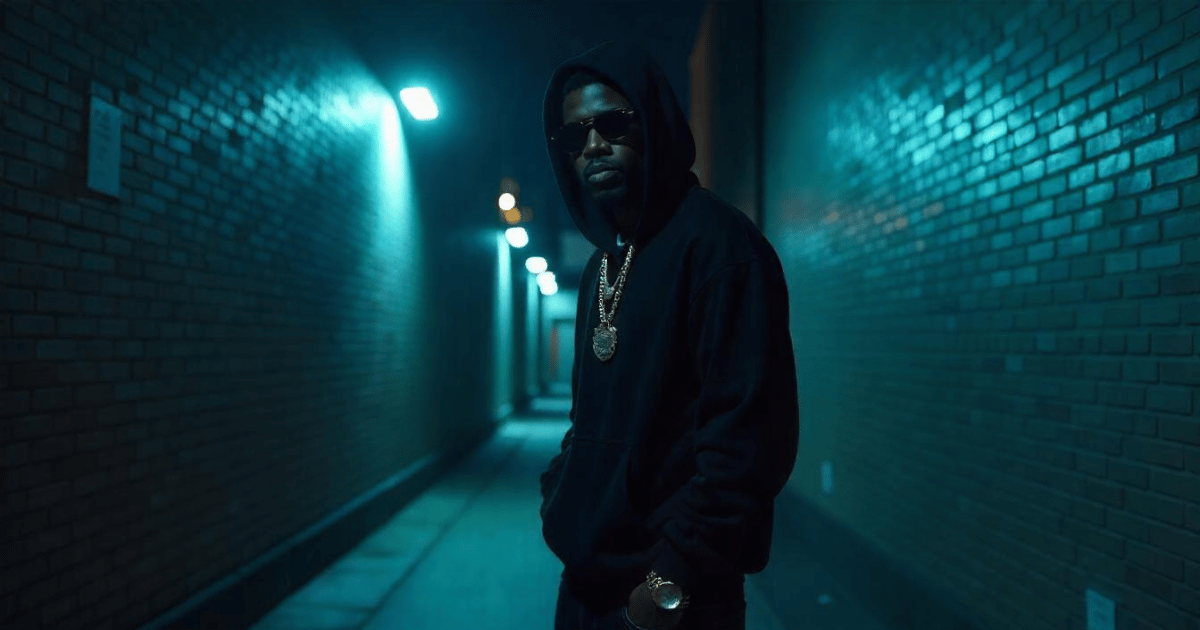The art of naming yourself in rap isn’t just a quirky exercise in wordplay—it’s a rite of passage, a manifesto, a coded claim to a legacy that might never be fully realized. You’re not just picking a moniker; you’re forging a persona, a brand, a sonic extension of your struggle and swagger. And let’s get one thing straight: in a world where authenticity is both currency and casualty, choosing your rap name becomes an act of rebellion against a sanitized mainstream and sometimes if you are stuck using a rap name generator can give you inspiration. It’s messy, it’s raw, and it’s unapologetically real.
Picture the scene: you’re sitting in a dim-lit room with a notebook, headphones blasting old-school beats, and the weight of countless legends bearing down on you. It’s like having Ghostface Killah whispering in your ear—every syllable a promise, every letter a legacy. You’re not here to be a clone; you’re here to be the original, a wild card in a deck stacked with predetermined identities. The first rule of creating a rap name? Don’t trust formulas. There’s no algorithm that can capture the nuance of your experiences or the fire in your gut. For those moments when inspiration lags, tools like the Hip-Hop Rap Name Generator or the Rap Nickname Generator offer a spark. They’re not a crutch; they’re a nod to the fusion of tradition with tech—a flash of algorithmic rebellion in a field defined by raw, unfiltered creativity.
Let’s break it down further. A rap name is a kind of linguistic alchemy. It’s where your personal history collides with cultural signifiers—a cocktail of grit, irony, and street wisdom. Think about it: your name is the first beat of your mixtape. It sets the tone, it demands attention. Should it be hard-hitting like Tupac’s “Makaveli” or smooth and introspective like Lauryn Hill’s soulful elegance? Perhaps it should be both—a name that’s as unpredictable as a freestyle on a late-night cypher. Every syllable, every inflection, echoes a part of who you are. It’s not about safe bets; it’s about carving out your own damn niche.
And yet, here’s the paradox: in a culture that idolizes authenticity, everyone is trying to sound original, yet the system is rigged towards recycled ideas and trends. In this landscape, a rap name becomes a double-edged sword. On one side, it’s a liberating declaration of self—an escape from the labels society might slap on you. On the other, it’s a commodity, something that’s marketed, merchandised, and even exploited. The same name that symbolizes your break from convention can also be co-opted by the industry’s relentless machine. It’s a reminder that while the beat goes on, the rules of the game are constantly shifting.
Creating a rap name is also about the narrative you want to spin. It’s a form of storytelling that begins before you even drop a verse. It signals where you come from and where you’re headed, all with a twist of irony or defiance. Consider the likes of Biggie Smalls or Ice Cube—names that resonate with more than just sound; they echo the weight of social commentary, the bitterness of lived realities, the punch of hard truths. You have to ask yourself: do you want your name to be a shield, a statement, or a provocation? Maybe it’s all three. Maybe it’s as layered as the history of the streets, the evolution of the art, and the endless quest for respect.
Some might argue that in the digital age, where every persona is curated and every image is manipulated, a rap name is just another avatar in a sea of avatars. But that’s a shallow take. Your rap name is the remix of your identity, distilled into a potent, memorable tag that defies algorithmic neatness. It’s as unpredictable as the next viral hit, as organic as a scratch on a vinyl record. In a time when commercialism often dilutes the raw edges of creative expression, your name can be the last bastion of the unfiltered, the unscripted, the unabashedly human.

And here’s where the tension really mounts: the process of choosing a name can be as tormenting as it is exhilarating. You might spend hours, days, maybe even years wrestling with words, testing combinations that feel as offbeat as an underground beat drop at midnight. It’s an iterative process that forces you to confront your own insecurities, your own contradictions. Are you trying too hard to be edgy? Or are you simply mirroring the chaos of the world around you? Every letter, every sound, is a question you’re posing to the universe: “Do you see me? Do you know my truth?” It’s not just a name—it’s an existential challenge.
In the streets, names carry stories. They’re tattoos on the soul, marks of survival etched into the fabric of urban mythos. They’re the nicknames whispered in back alleys and shouted in packed clubs. They’re both a promise and a burden. When you decide on a rap name, you’re stepping into a lineage—a lineage that spans decades of struggle, artistry, and rebellion. It’s the echo of Grandmaster Flash scratching the surface of vinyl, the defiant roar of N.W.A challenging authority, the poignant introspection of Kendrick Lamar probing the depths of his own psyche. Your name must be a vessel, carrying all of that weight, all of that history, into a future that’s as uncertain as it is electrifying.
There’s an ironic twist to all this. In a society obsessed with branding, where even our identities are meticulously packaged, the very act of naming oneself as a rap artist is simultaneously a personal rebellion and a marketing masterstroke. It’s the collision of art and commerce. The industry loves a good story, a name that sounds fresh but feels rooted in tradition. And sometimes, that very tension—the push and pull between raw authenticity and marketability—creates the most unforgettable names. It’s like watching a live performance where every note is unpredictable, every beat a gamble.
So, where do you begin? Start with the core of who you are. Strip away the filters and facades. Look into the mirror and ask yourself what scars, triumphs, or dreams define you. Experiment with language—mix languages, slang, and even numbers. Let your influences run wild: literature, film, street art, underground sounds. Maybe it’s a mashup of your neighborhood’s local dialect and the swagger of a hip-hop titan. Maybe it’s a nod to a historical figure or a pun that only a true connoisseur of the culture would appreciate. There’s beauty in the breakdown of traditional linguistic boundaries; that’s where true originality thrives.
And don’t shy away from the absurd. Some of the best names in rap are born out of irreverence, of a deliberate subversion of what’s expected. Sometimes the perfect name is a jarring juxtaposition—a tender word paired with a violent one, a light-hearted twist on a dark reality. It’s a reflection of life itself, messy, contradictory, and impossibly vibrant. Remember, the name isn’t just a label—it’s a promise to your audience. It says, “I’m here to shake things up. I’m here to speak truths that others are too scared to touch.”
At the end of the day, creating a rap name is an act of liberation. It’s stepping away from a world that demands conformity and embracing a wild, uncharted identity that’s all your own. It’s the first line of your own manifesto, a call to arms that challenges every expectation and defies every norm. Whether your name ends up as a legend in the annals of rap history or as a fleeting whisper in the underground, know this: the process itself is a transformative journey. It’s about finding your voice, your rhythm, your unique cadence in a world that’s constantly trying to mute the raw, unpolished truth.
So, if you’re ready to dive into this whirlwind of creativity, dare to be different. Craft a name that’s as unpredictable and layered as the beats that pulse through the city streets at dawn. Challenge the system. Embrace the chaos. And above all, let your name be the spark that ignites a fire—one that burns against the grain, defies expectations, and forever changes the game.
